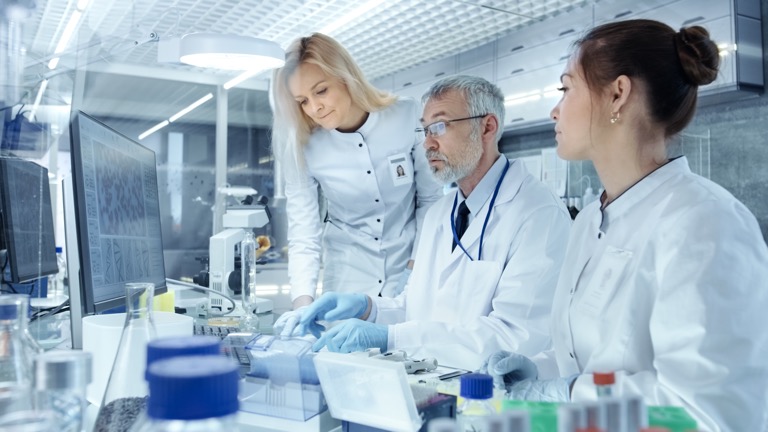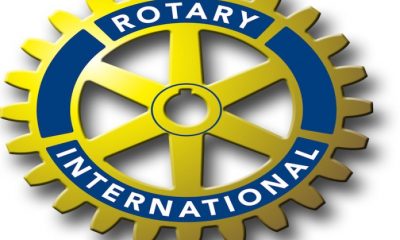Health
World Health Day: Nigerian Youths Call for Action to Improve Adolescents’ Health

Youth leaders and civil society groups in Nigeria have urged the government to invest in equity-enhancing strategies to restore crumbling services for women, newborns, children and adolescents.
The Executive Director of the Africa Health Budget Network (AHBN), Dr Aminu Magashi, said this in Abuja on Tuesday to commemorate the 2021 World Health Day.
The World Health Day is being commemorated globally on April 7, under the theme “Together for a fairer, healthier world”.
On this occasion, the World Health Organisation (WHO) calls for urgent action to eliminate health inequities and mobilise action to attain better health for all and leave no one behind.
Magashi said that this year’s celebration was being held at the backdrop of the COVID-19 pandemic which continued to threaten the improvement in health and social services.
“The theme for this year’s World Health Day focusing on ‘Building a fairer, healthier world’ reminds us of a need to invest in equity-enhancing strategies to address the needs of the most vulnerable.
“COVID-19 has exacerbated inequities, putting at risk hard won gains that have been made over the past decade,” says Helga Fogstad, Executive Director of the Partnership for Maternal, Newborn & Child Health (PMNCH)
“Ensuring that women, children and adolescents are protected from the disproportionate indirect social and economic challenges of the pandemic and associated financial crisis will require action from all stakeholders,” adds Fogstad.
He disclosed that Nigeria was among 10 countries that recently heeded the call, and recently made major commitments to prioritise investments for the health and well-being of women, children and adolescents.
“The West African nation has pledged $2.3 billion during 2020-2028 for strategic interventions that protect the reproductive, maternal, newborn, child, adolescent and elderly health and nutrition through access to family planning services, immunisation and nutrition programmes.
“Today youth leaders, campaigners and representatives of civil society organisations from across Nigeria are meeting to deliberate on the progress of improving the health and well-being of women, children and adolescents in Africa’s most populous nation,” he said.
According to him, Nigeria has the largest youth population in Africa.
“Since the COVID-19 pandemic erupted, the group has been negatively affected more than others due to the disruptions of essential health, nutrition and social services.
The World Health Day 2021 is aimed at building a fairer and healthier Nigeria,” said Mr Muhammad Usman, Chair of the National Advocates for Health (NA4H).
“I am therefore calling on both federal and state governments to improve budgetary allocations and timely release of funds for health interventions, particularly for family planning, nutrition, primary healthcare including the Basic Healthcare Provision Fund and the national health insurance for universal health coverage.”
The participants at the event discussed recent trends in maternal, newborn and adolescent health in Nigeria.
They also discussed opportunities for parliamentarians, including National Assembly’s committees on health and finance, to contribute towards better health for women, girls and adolescents.
Young people account for over 60 per cent of Nigeria’s population,” said Mrs Oyeyemi Pitan, Convener of the Nigerian Youth Champions for Universal Health Coverage (NYC4UHC).
“Therefore, the government, both at the federal and state levels, must invest in the health of young people by ensuring that all primary healthcare centres are adequately staffed, equipped and functional.
“This is to provide access to sexual and reproductive health services, mental health services and essential life-saving drugs and commodities,” Pitan noted.
NAN reports that in 2020, PMNCH issued a 7-point call to Action in response to the devastating effects of COVID-19 on the health and well-being of women, children and adolescents.
It called on leaders to protect and prioritise their rights and health during the COVID-19 response and recovery by strengthening political commitment, policies and financing for vital health services and social protections, particularly for the most vulnerable.
For adolescents, it complements the PMNCH-led worldwide Call to Action on Adolescent Wellbeing.
Other low and middle-income countries that have made similar commitments include: Kenya, Liberia, Afghanistan, India, and Mexico, while donor countries, Canada, Germany, Sweden and United Kingdom.
The U.S. and the Bill and Melinda Gates Foundation have also pledged support for this critical area of global health and development that is vital to the achievement of universal health coverage.
However, experts say a lot still needs to be done and stopping preventable deaths of women, girls and children must remain a top priority.
In addition, the COVID-19 pandemic has further worsened the situation as a result of disruption of essential Reproductive Maternal, Newborn, Child and Adolescents’ Health services, including family planning at all levels of healthcare delivery.
Recent data from the WHO from 105 countries show that 90 per cent of countries have experienced disruptions to health services, with low- and middle-income countries reporting the greatest difficulties.
Some of the most frequently disrupted services include those related to: immunisation services (facility-based services: 61 per cent and outreach facilities: 70 per cent) and family planning and contraception services: 68 per cent.
On health statistics in Nigeria, WHO said about 20 per cent of all global maternal deaths occurred in Nigeria, with over 600,000 maternal deaths and about 900,000 maternal near-miss cases between 2005 and 2015 respectively.
It said that a woman in Nigeria had a 1-in-22 lifetime risk of dying during pregnancy, childbirth or postpartum/post-abortion compared with the lifetime risk of 1 in 4900 in the most developed countries.
Nigeria’s large population size and high women, children and adolescent (WCA) morbidity and mortality means that the country’s progress can significantly shift the development in Africa and globally.
The State of Child Health, according to the latest UNICEF “Levels and Trends in Child Mortality” stated that Nigeria recorded an estimated 858,000 under-five deaths in 2019.
With about 7.4 million children currently born annually in Nigeria, improved policy and investment in infant and child health is crucial to prevent an increase in under-5 mortality.
Access to WASH in Schools was said to be a third of all schools 33 per cent have basic water supply services while 26 per cent of schools provide access to basic sanitation services.
As little as three per cent of schools have girls’ toilet compartments that have provisions for menstrual hygiene management.
Hand washing facilities are not available in 76.4 per cent of schools while about one in 10 schools 10 per cent have access to basic hygiene services.(NAN)
Health
WHO Approves 2 New Vaccines to Protect Infants From RSV

The World Health Organization (WHO), on Friday, issued recommendations for two new immunisation tools to protect infants from Respiratory Syncytial Virus (RSV)They included a maternal vaccine, administered to pregnant women in their third trimester to protect their newborns.The other was a long-acting antibody injection for infants, which begins to protect within a week of administration and lasts for at least five months.
According to WHO, RSV is the leading cause of acute lower respiratory infections in children globally. It causes around 100,000 deaths and 3.6 million hospitalisations each year among children under the age of five, while infants under six months are most at risk.Alarmingly, 97 per cent of these deaths occur in low and middle-income countries, according to WHO.Although RSV can infect people of all ages, “it is especially harmful to infants, particularly those born prematurely,” a WHO official, Kate O’Brien, said.O’Brien added that around half of all RSV-related deaths occurred in babies younger than six months.Considering the global burden of severe RSV illness in infants, WHO recommended that all countries adopt either the maternal vaccine or the antibody injection as part of their national immunisation strategies.“These RSV immunisation products can transform the fight against severe RSV disease, dramatically reduce hospitalisations and deaths, and ultimately save many infant lives worldwide,” O’Brien said. (NAN)Health
UNICEF Promotes Menstrual Hygiene for Girls

The United Nations Children’s Fund (UNICEF) has encouraged girls to embrace menstruation with pride and confidence, recognizing themselves as vital contributors to humanity’s sustainability.
Mrs Aderonke Akinwole, Social and Behavioural Change Specialist at UNICEF, gave the advice during an event on Wednesday organised with the Nigeria Girls’ Guild and Lagos State Primary Health Care Board.
The event was held to commemorate Menstrual Hygiene Day (MHDay) and was attended by students from both public and private schools across Lagos.
With the theme ‘Together for a Period Friendly World,’ the event aimed to raise awareness and promote dignity in menstrual hygiene.
“When a girl begins menstruation, it should be celebrated. It signifies her transition into womanhood and her ability to sustain life.
“They should be proud, and seek accurate, helpful information to remain safe, clean, and healthy during their period,” Akinwole said.
She emphasised that girls must not feel ashamed, as menstruation is a natural part of womanhood and a symbol of female dignity.
She urged the state government to increase sensitisation efforts and include menstrual hygiene education in school curricula, religious settings, and community platforms.
Akinwole also warned against stigmatisation, especially from boys, and called for boys to be educated to respect menstruation as part of girls’ lives.
“Girls should understand the menstrual cycle even before it starts. This should be part of health education in schools, churches, mosques, and communities,” she said.
She explained that girls need awareness on menstrual hygiene management and should know how to prepare for their periods in a healthy, informed way.
Mrs Honfor Adesola, Director of Education at Lagos State Primary Education Board, commended UNICEF’s support in promoting menstrual hygiene and addressing issues affecting girls.
Adesola highlighted that maintaining menstrual hygiene is vital in preventing infections and ensuring comfort throughout the menstrual cycle.
She noted that the event also helped to raise awareness about the Human Papillomavirus (HPV) vaccine available free in health centres across Lagos.
“We’re here to mark MHDay and to engage girls on HPV awareness. The state government has provided the vaccine, and sensitisation must continue,” she explained.
She encouraged girls to discuss the HPV vaccine with their parents to gain consent, ensuring protection against cervical cancer.
“The vaccine is safe, effective, and accessible in state facilities for girls aged nine to fourteen, but many have not yet been vaccinated,” she added.
Meanwhile, Ethagah Divine, Head Girl of New Estate Baptist Secondary School, Surulere, called on NGOs to provide sanitary pads for girls.
She urged more campaigns and rallies to distribute free menstrual products, like UNICEF did, to promote hygiene and dignity during menstruation.
Miss Emmanuella Azubuike, a student of the same school, expressed gratitude to UNICEF and partners for the impactful menstrual hygiene awareness event.
“This programme has expanded my knowledge on menstrual hygiene and HPV. More NGOs should support these campaigns to reach and educate more young girls,” she said. (NAN)
Health
Soludo’s Wife Establishes Pad Banks in 300 schools

Wife of Anambra State Governor, Dr Nonye Soludo, says she has established pad banks in 300 schools across the state as part of her pet project, Healthy Living Initiative.
Mrs Soludo disclosed this in a message in Awka on Wednesday to mark the 2025 World Menstrual Hygiene Day.
She said that the initiative was her own approach to helping school girls whose academic focus could be affected during menstruation and related emergencies.
Mrs Soludo stressed the need to provide immediate solutions for menstrual emergencies in schools, so that girls caught off guard could confidently rely on the pad banks.
“Official data say that an estimated 37 million women and girls in Nigeria are unable to afford sanitary pads and only rely on unhygienic alternatives.
“The data reinforce World Health Organisation and United Nations Children’s Fund finding that poor water, sanitation and hygiene infrastructure hinders safe and dignified menstruation for women and girls.
“Other data say that only two in five schools globally offer menstrual health education and just one in three have bins for menstrual waste.
“These figures challenge key stakeholders to find practical solutions to address the root of the problem while the situation remains reversible.”
She called for intensified campaign to reach more women and girls currently facing menstrual hygiene challenges.
The governor’s wife noted that the growing number of women, especially girls, in urgent need of menstrual support makes it essential for stakeholders to re-strategise their campaign approach.
According to her, menstrual health remains the right of every girl-child.
She encouraged girls at the designated schools participating in the pad bank project to use the supplies with confidence.
Mrs Soludo assured them that her NGO was fully committed to restocking any of the pad banks that run out of sanitary products.(NAN)

























